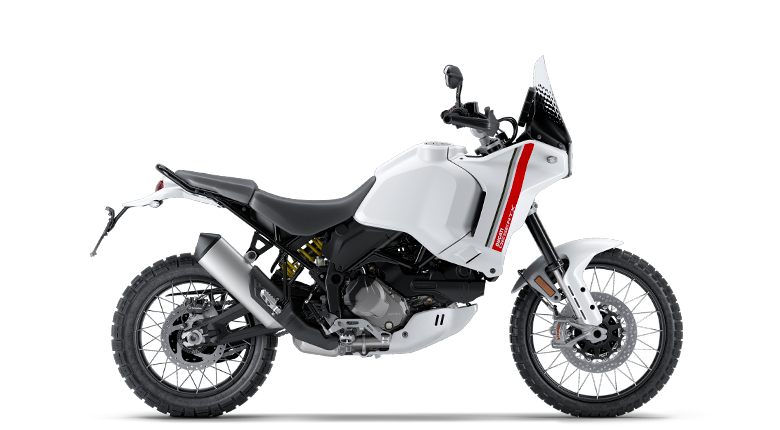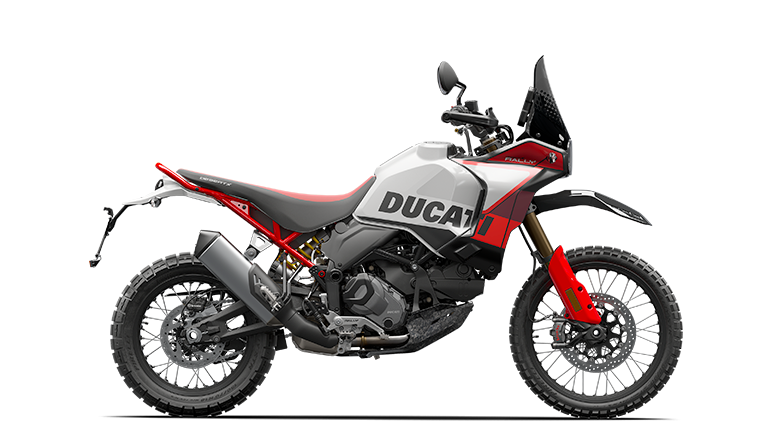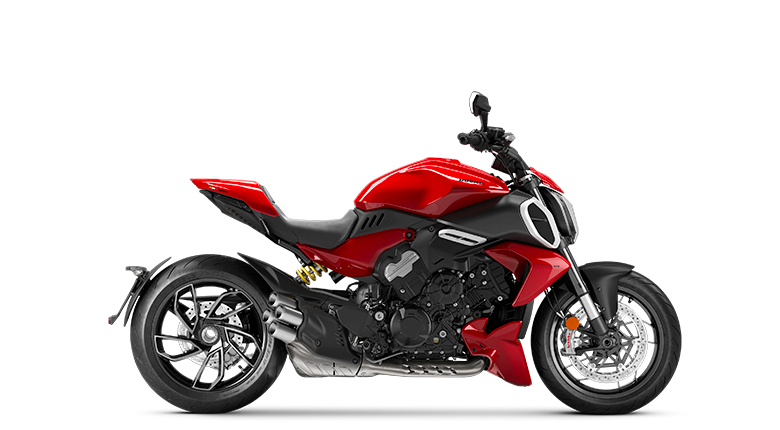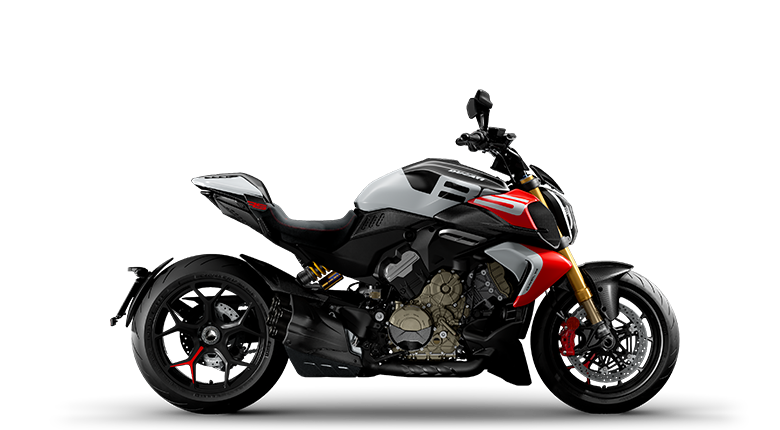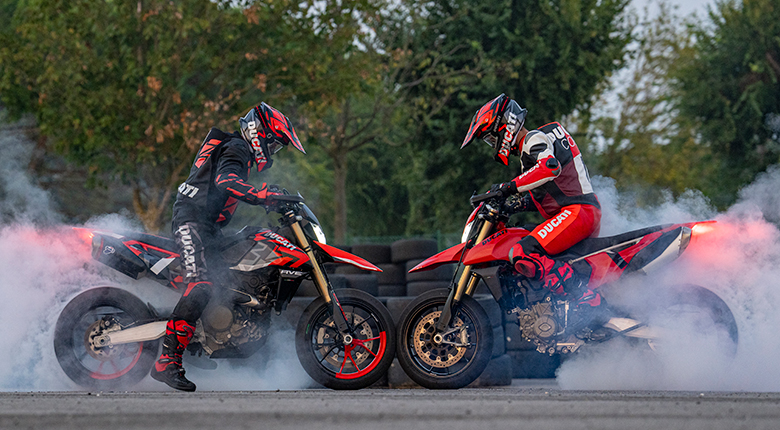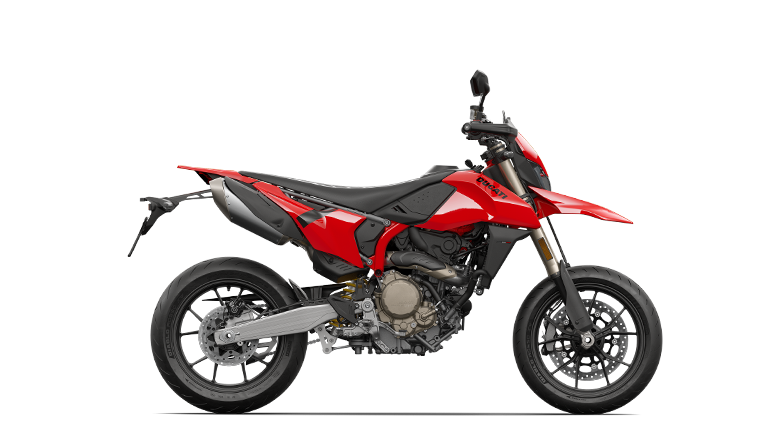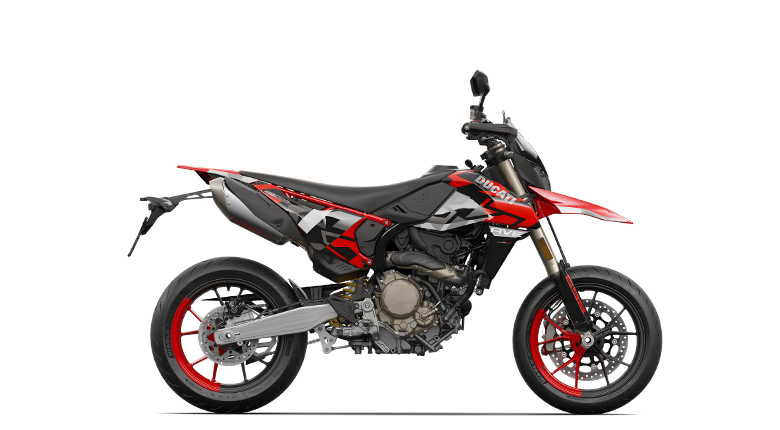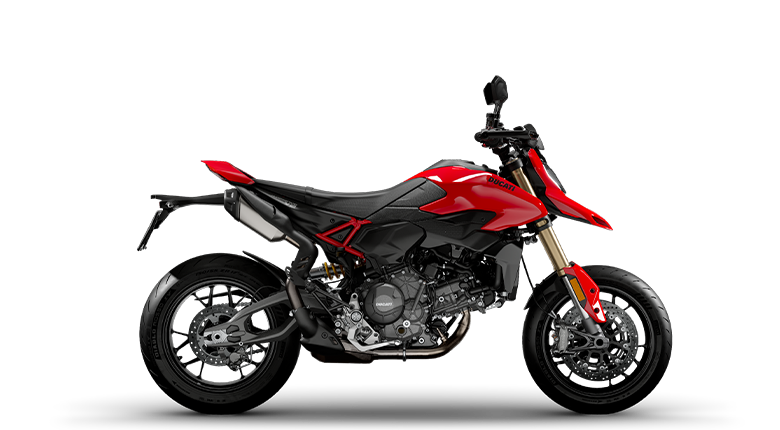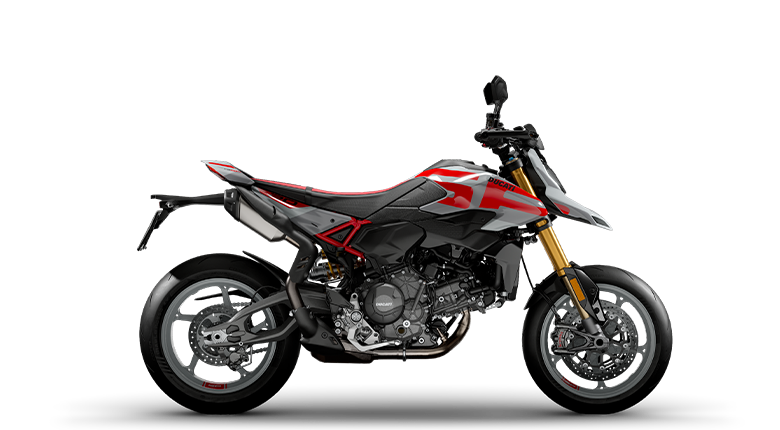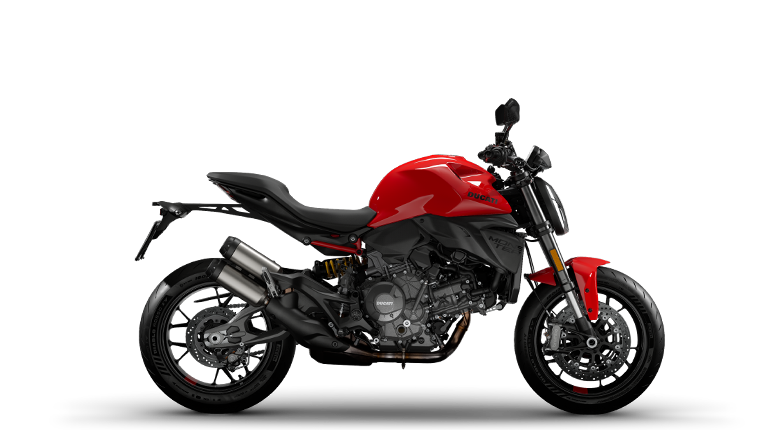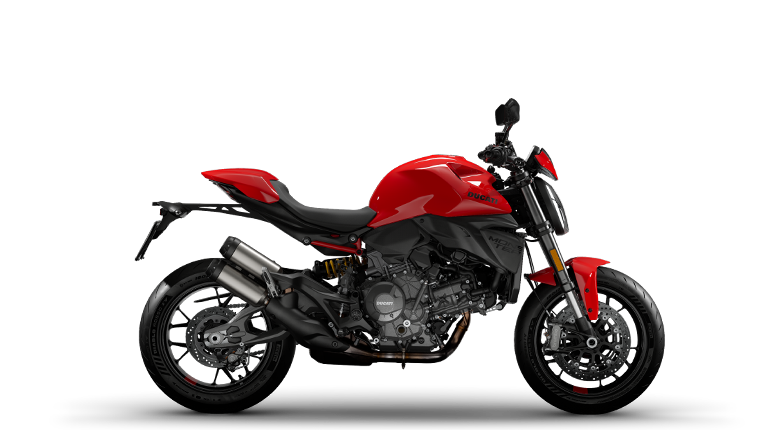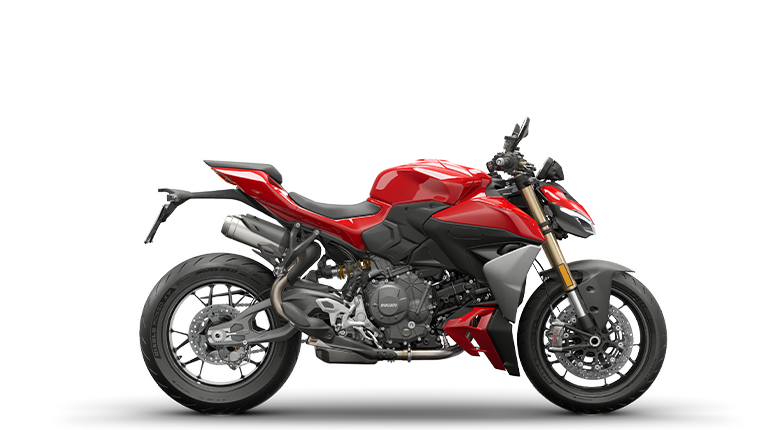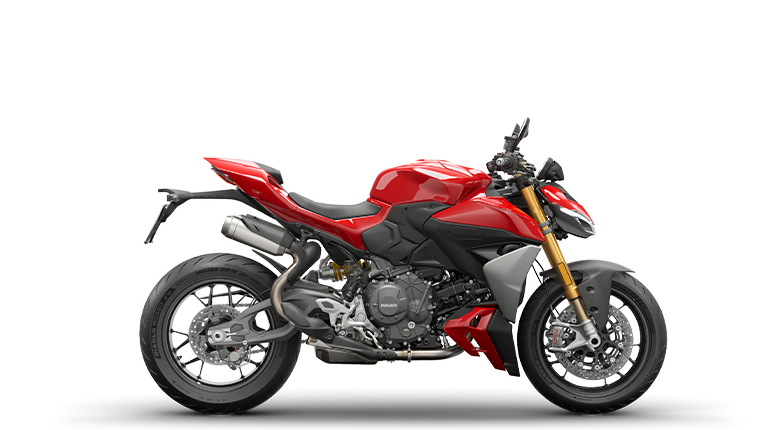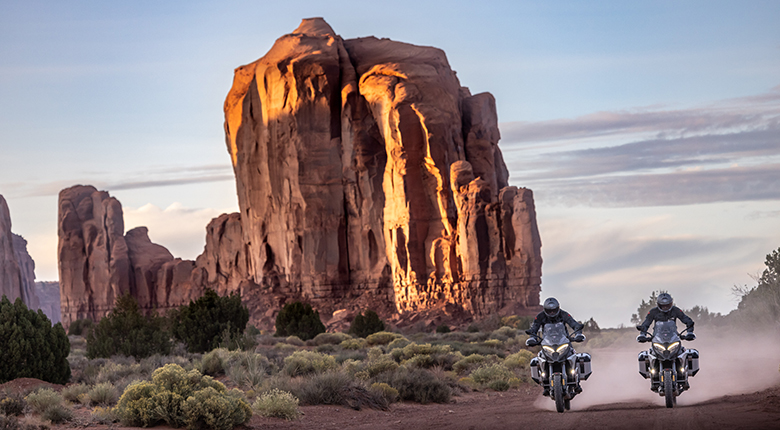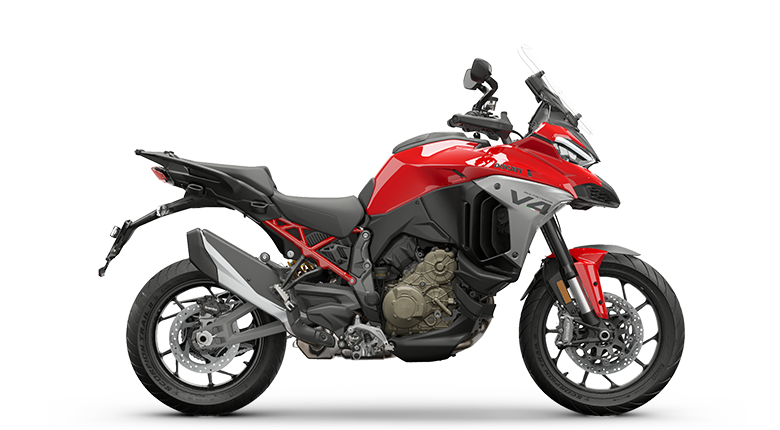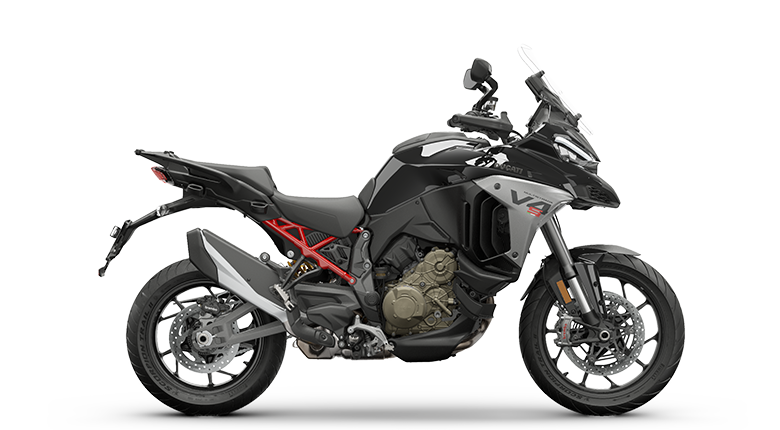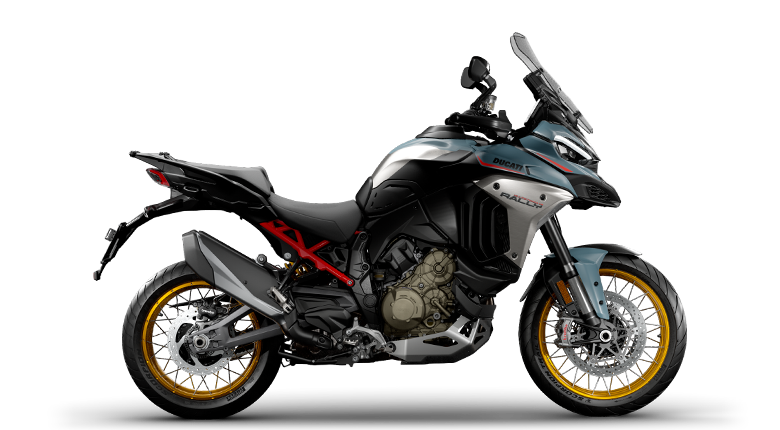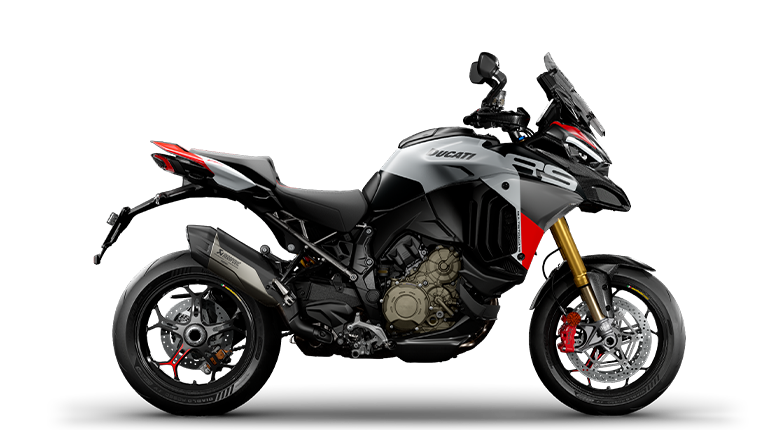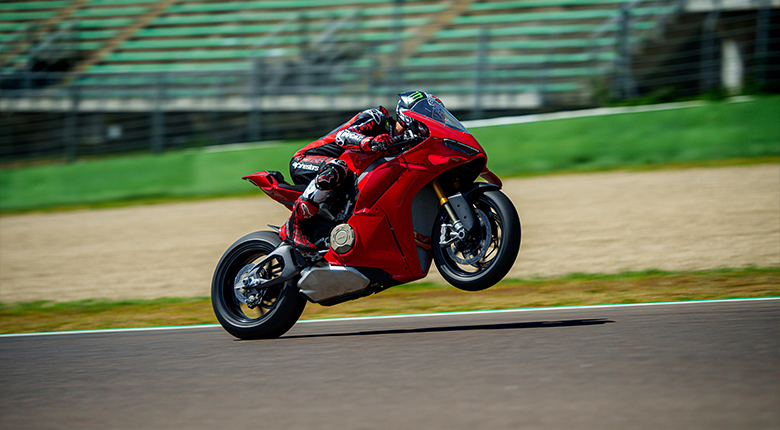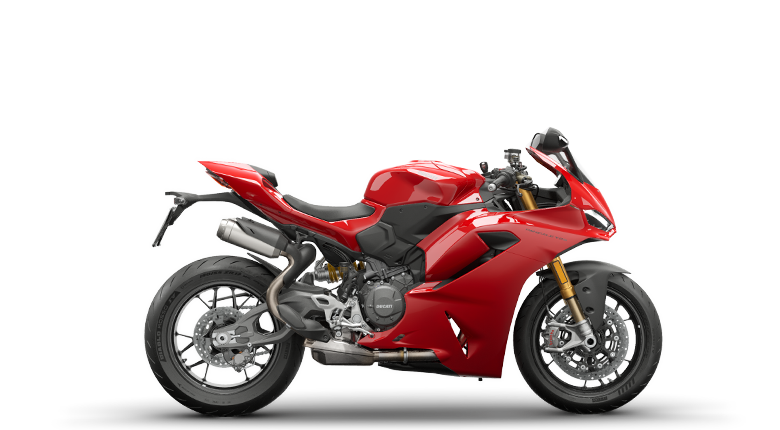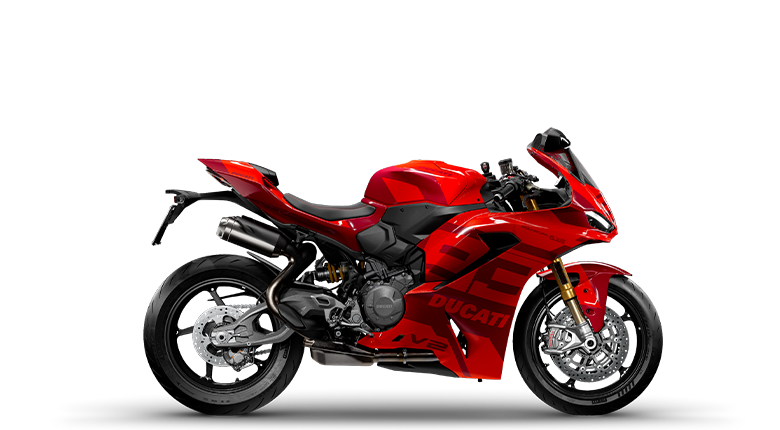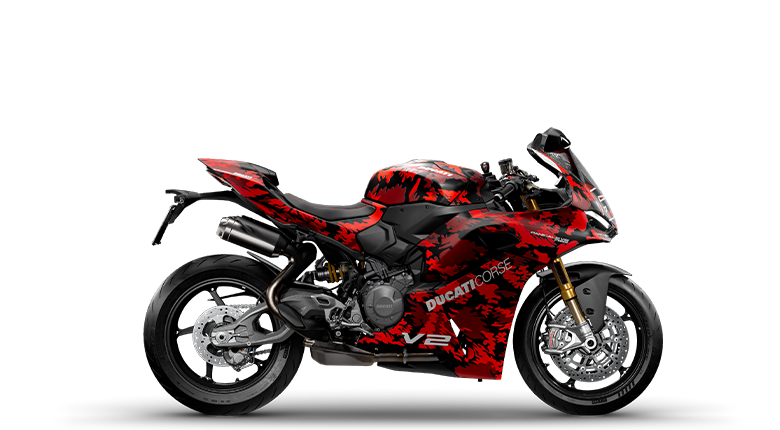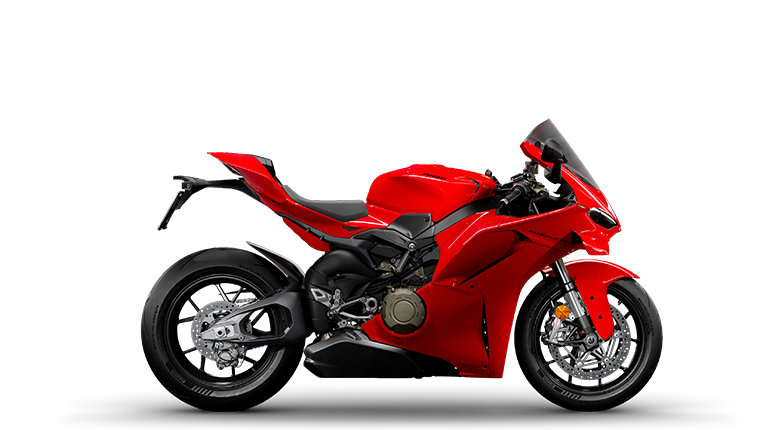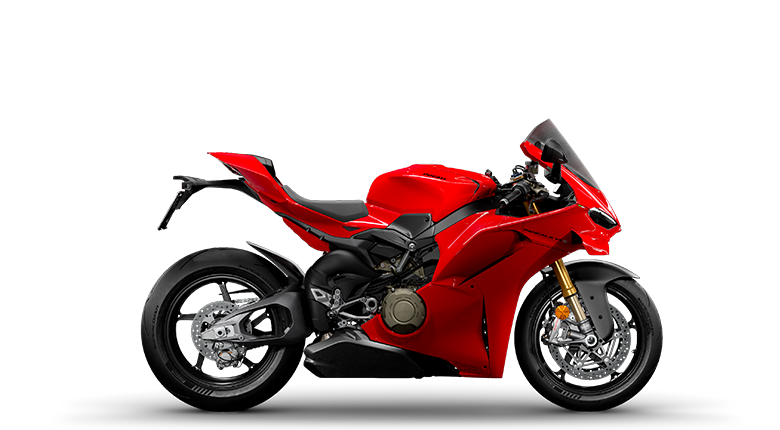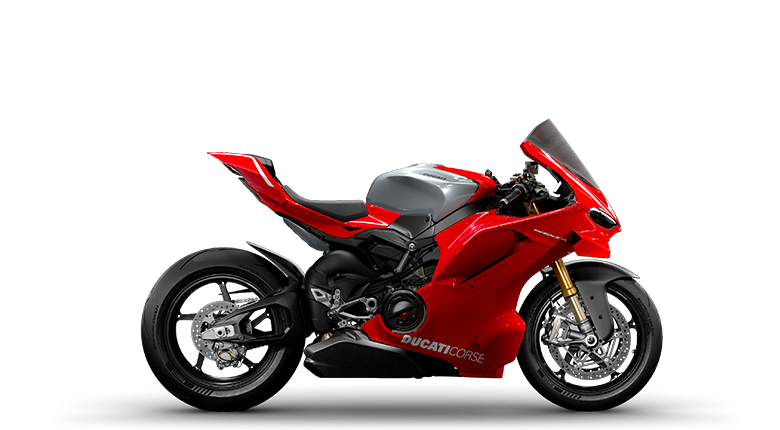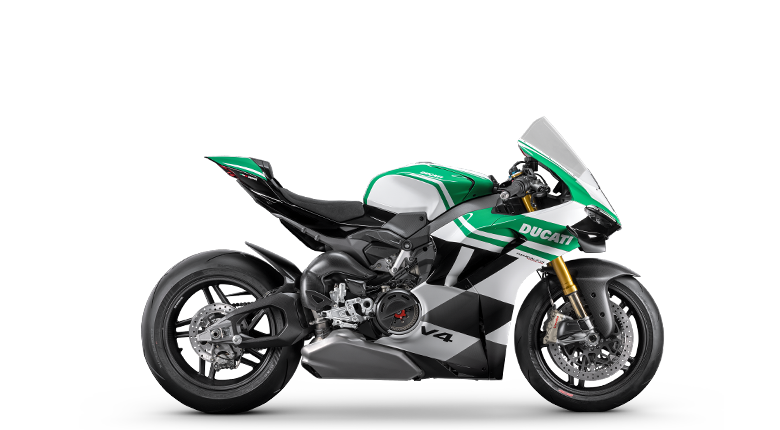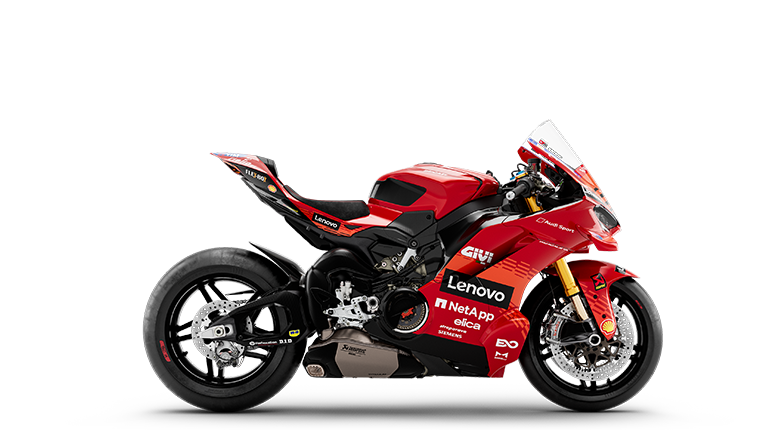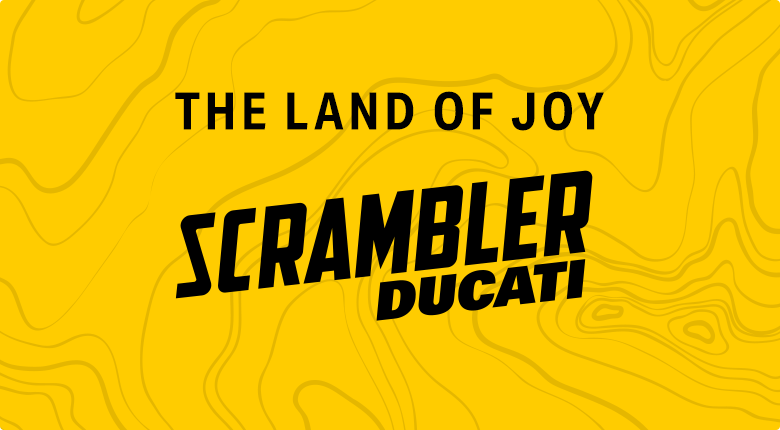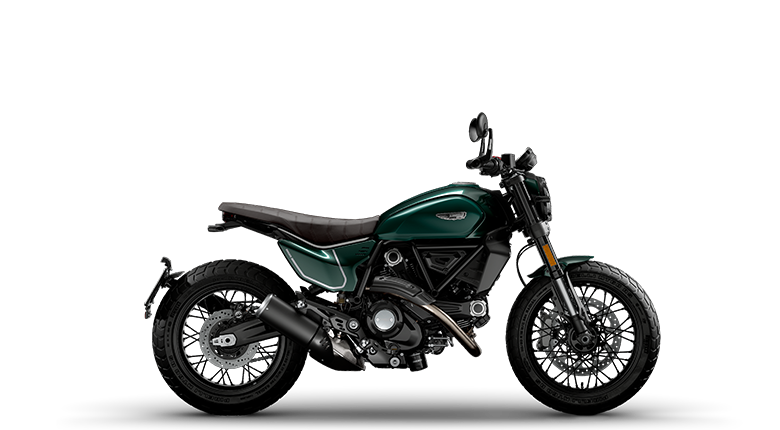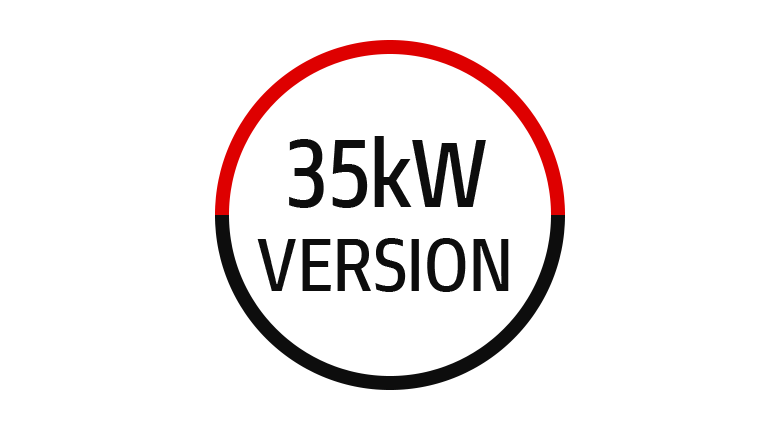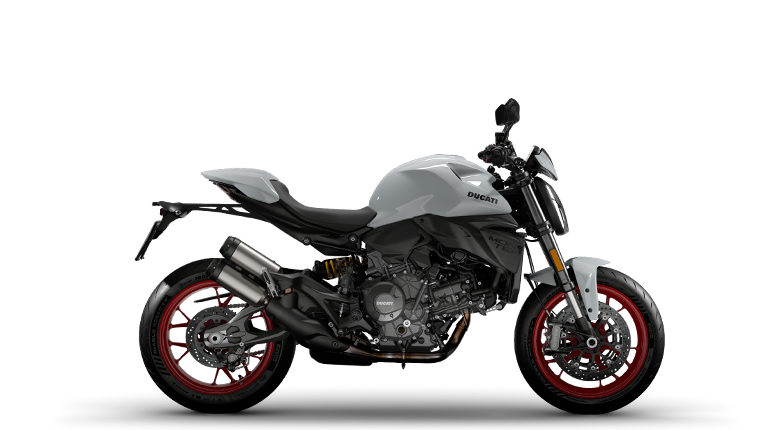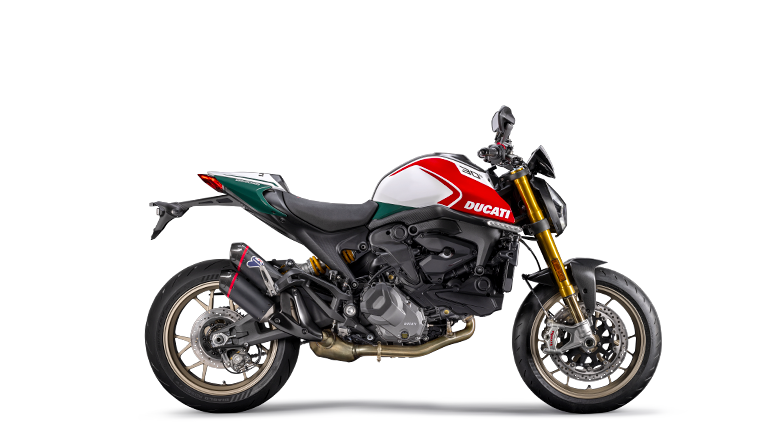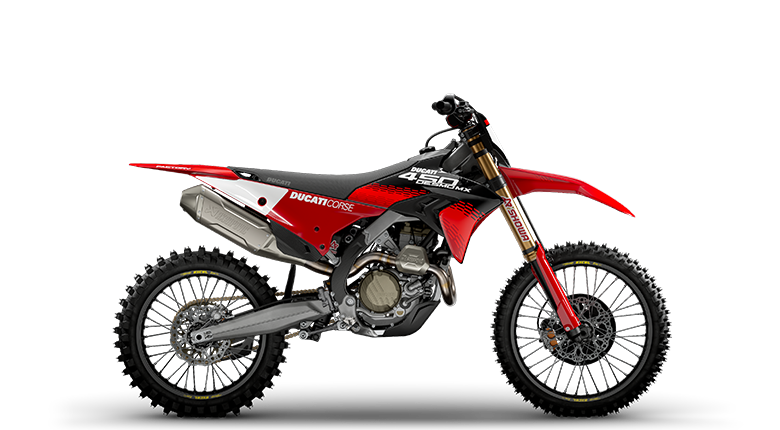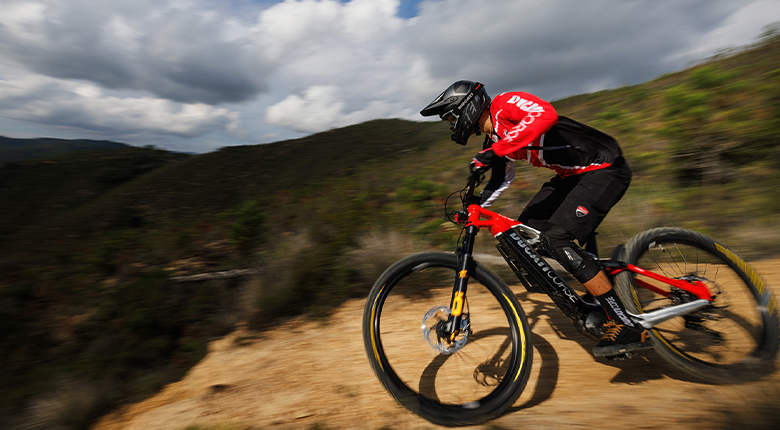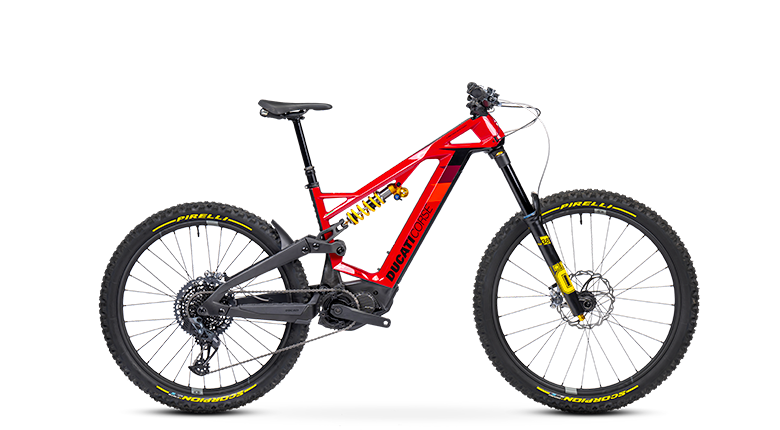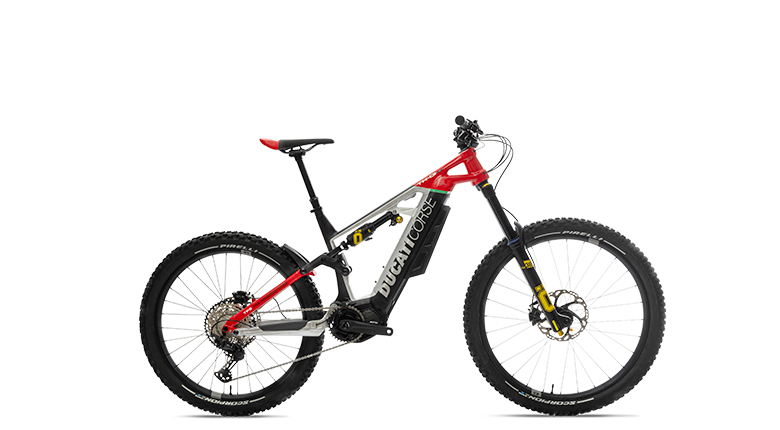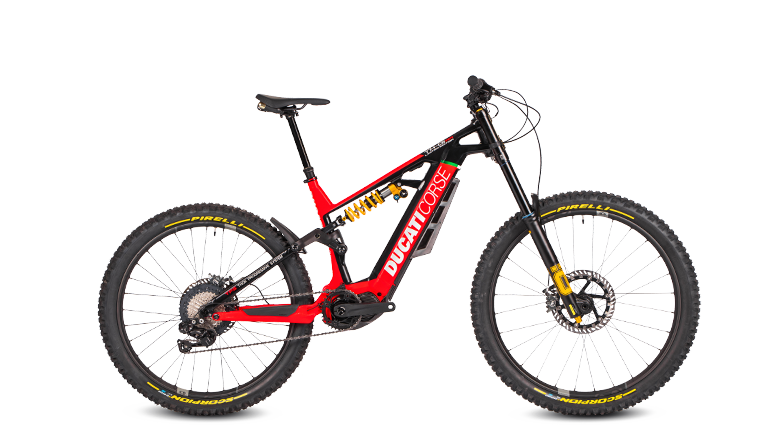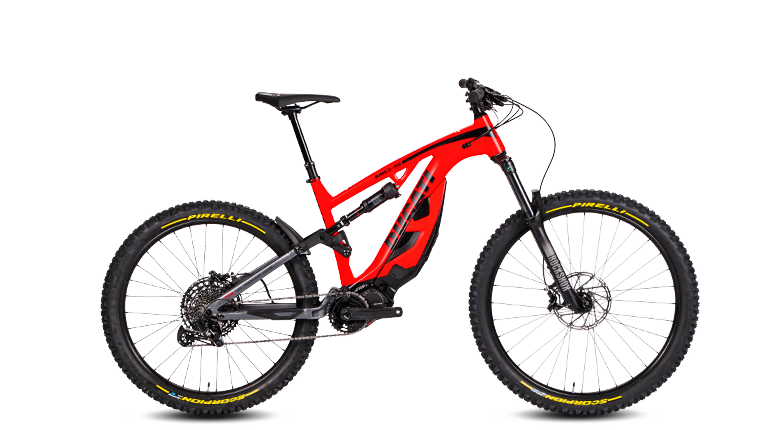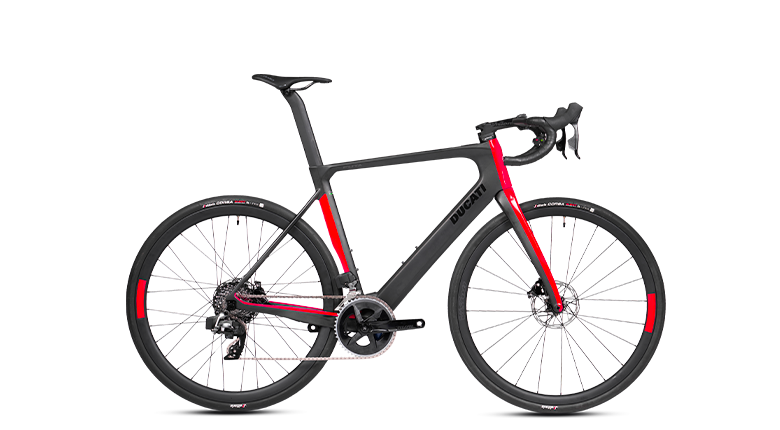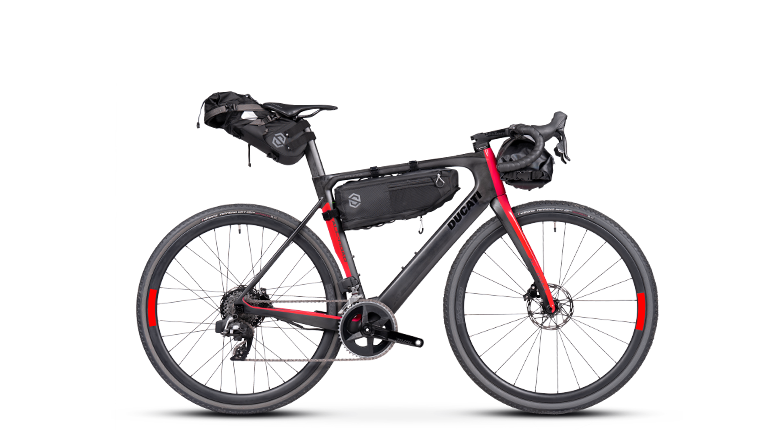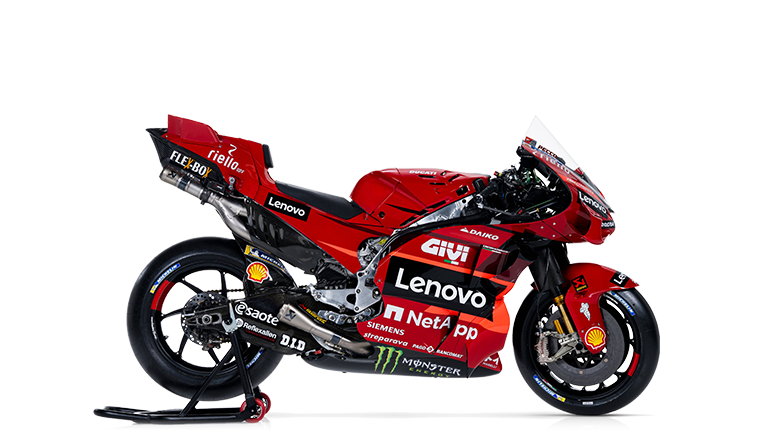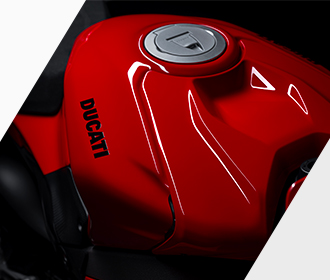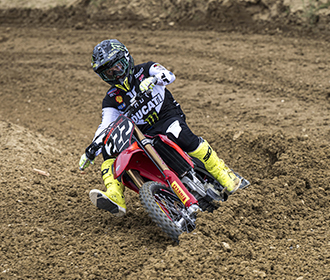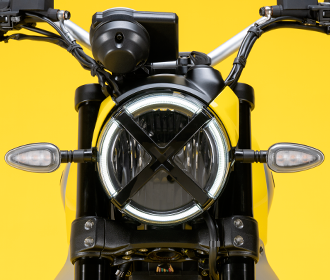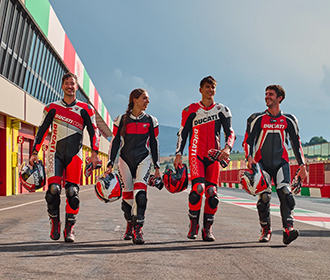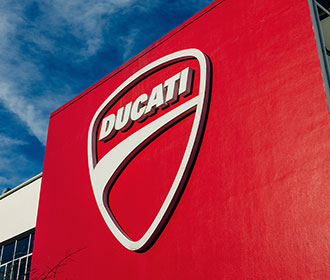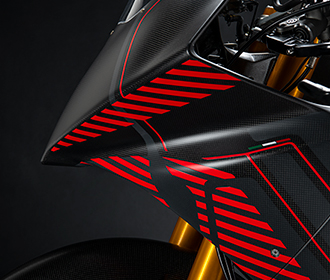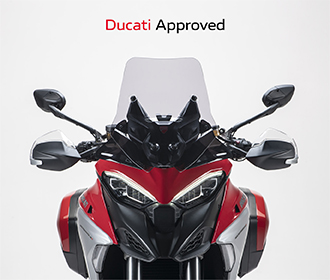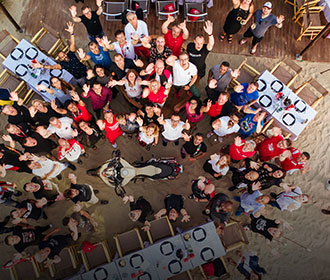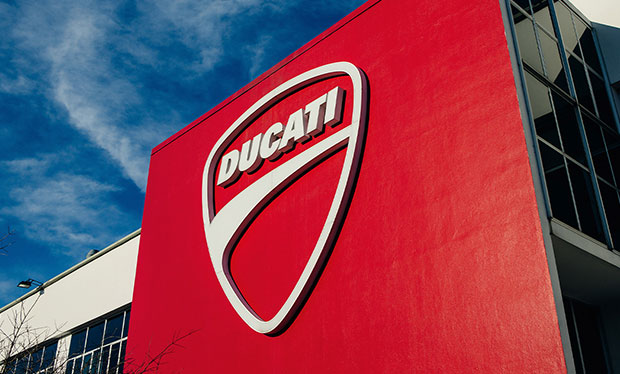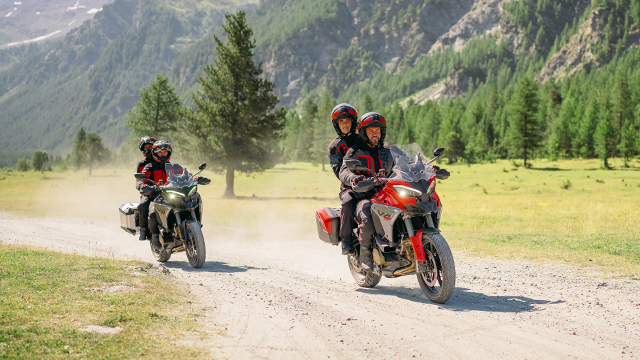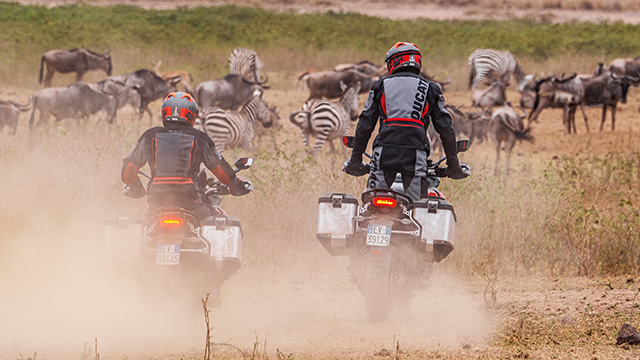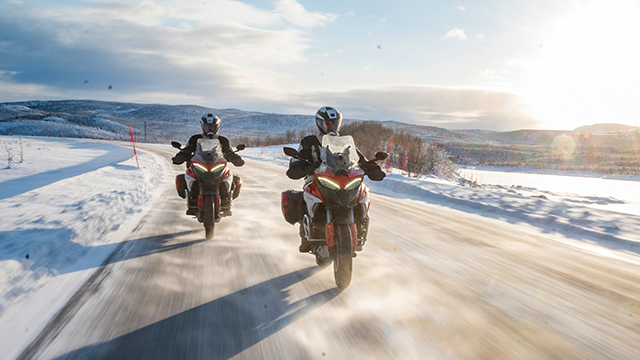- Models
- Configurator
- Shop
- News
- Racing
- DWP 2026
-
Models
-
DesertX
![]()
-
Diavel
![]()
-
XDiavel
![]()
- V4
XDiavel -
Hypermotard
![]()
- OVERVIEW
- 698 Mono
- 698 Mono RVE
- new V2
- new V2 SP
Hypermotard -
Monster
![]()
- new Monster
- new Monster +
Monster -
Streetfighter
![]()
-
Multistrada
![]()
- OVERVIEW
- V2
- V2 S
- V4
- V4 S
- new V4 Rally
- V4 Pikes Peak
- new V4 RS
Multistrada -
Panigale
![]()
-
![]()
-
35 kW Bikes
![]()
-
Off-Road
![]()
-
E-BIKE
![]()
-
Ducati Speciale
![]()
- Ducati Speciale
- Limited Series
- Racing Replica
- Racing Real
- Ducati Unica
Ducati Speciale
-
- Equipment
- Shop
- DWP 2026
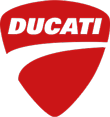
Bikes
XDiavel
Hypermotard
Panigale
E-BIKE
Ducati Speciale
Equipment
Accessories
Ducati World
Ducati Riding Experience
Ducati Stories
News
Corporate
Innovation
Design
Borgo Panigale Experience
Fondazione Ducati
The Ducati Network
Corporate Social Responsibility
Partners
- Ducati World
- Equipment
- App
- Corporate
- Service
- Ducati Club
- Dealer Locator
 International website
Change
International website
Change
Models

DesertX
New
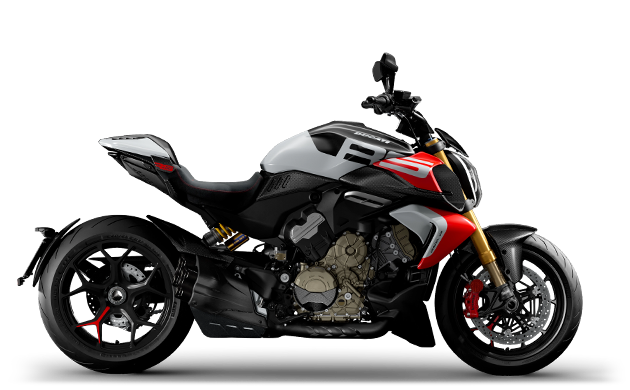
Diavel
New
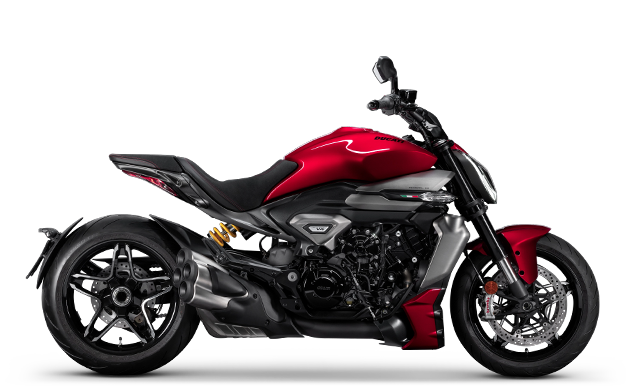
XDiavel
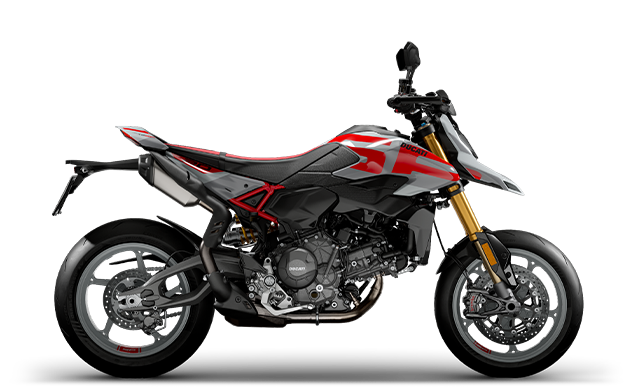
Hypermotard
New
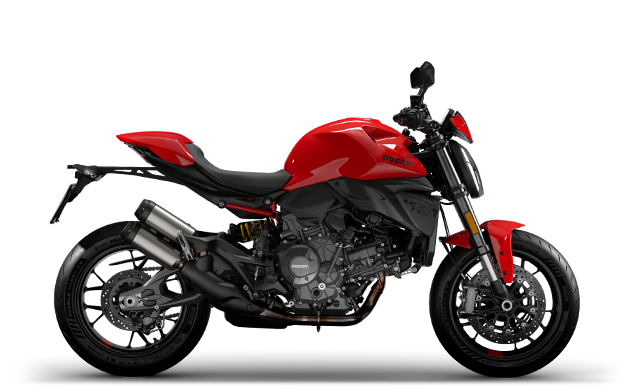
Monster
New
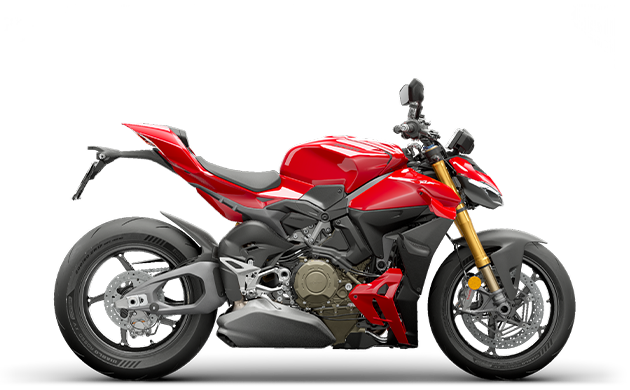
Streetfighter
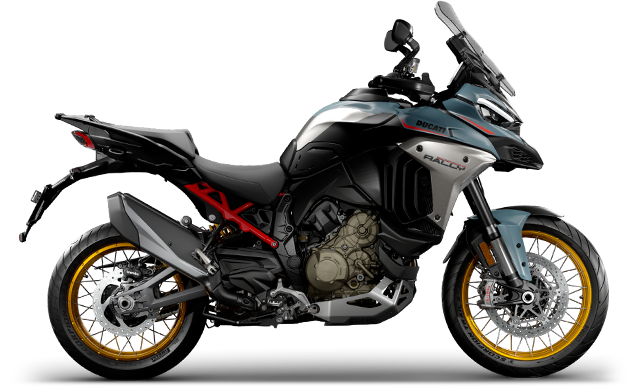
Multistrada
New
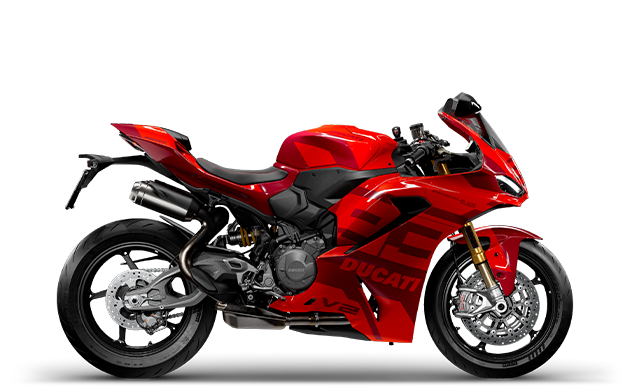
Panigale
New
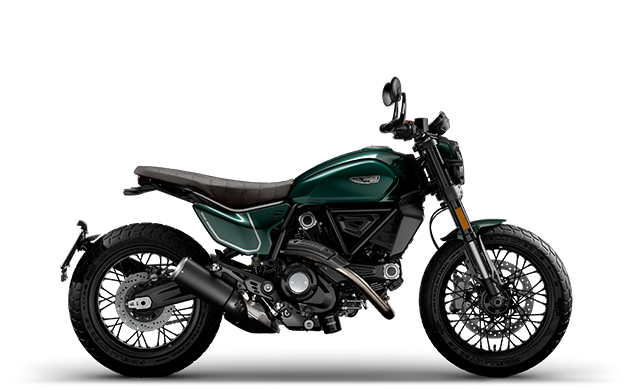
SCRAMBLER
New
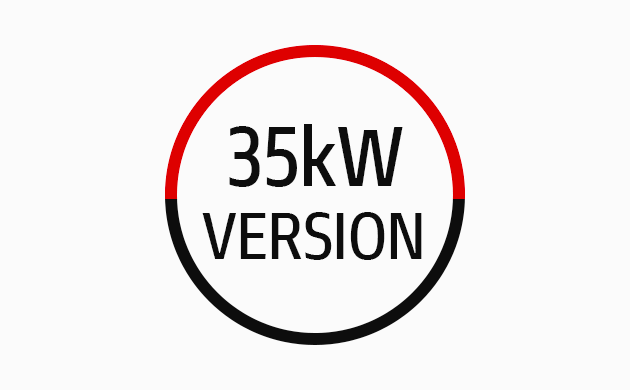
35 kW Bikes
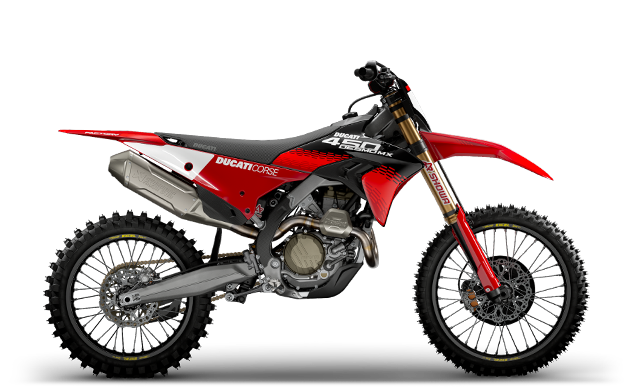
Off-Road
New

E-BIKE
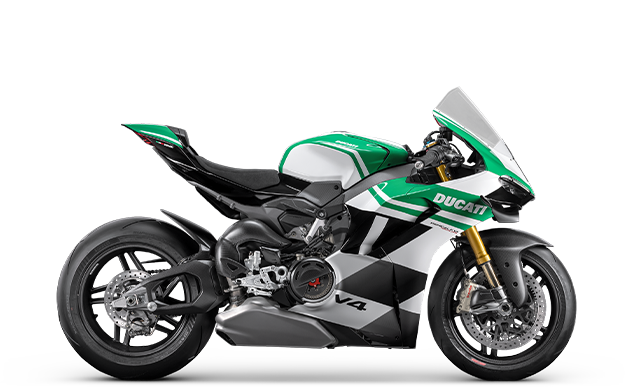
Ducati Speciale
Racing
- MotoGP
- WorldSBK
- Motocross
- MotoE
Ducati World
- Events
- Ducati Riding Experience
- Ducati Stories
- News

Events Calendar
Discover about events and rallies organized by Ducati and the Ducati Official Clubs.
Discover more
Equipment
- Accessories
- Apparel
- Collab
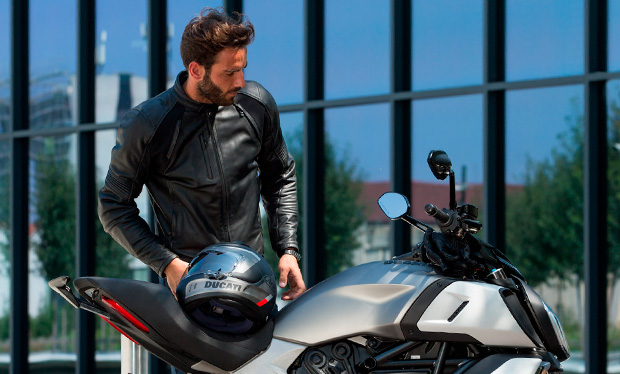
Ducati Online Shop
The online shop has a whole new look. Our style is the same as always. Buy now!
Click and discover!
Corporate
- Who We Are
- Innovation
- Design
- Borgo Panigale Experience
- Fondazione Ducati
- The Ducati Network
- Corporate Social Responsibility
- Partners
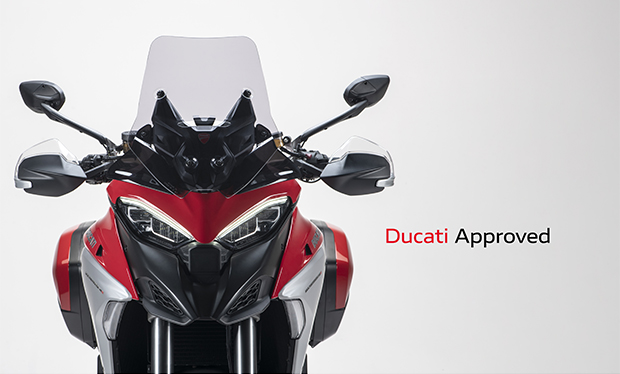
Ducati Approved
When you choose a Ducati Approved bike, you can be sure that Ducati is always by your side.
Discover more
Service
Ducati Club

TRAVEL ITINERARIES
Route to Dakar with the Multistrada V4 Rally
Four friends, one shared passion, and the desire to cross borders, deserts, and oceans on their Ducati Multistradas.
From Europe to West Africa: 7,000 km through Morocco, Mauritania, and Senegal
The journey began in Málaga, but the idea took shape in Poland, where four friends planned an adventure to Africa with their Multistradas. What started as a simple idea soon became a true two-wheeled expedition: 17 days, over 7,000 km, and three African countries, filled with breathtaking landscapes, challenging tracks, and unforgettable encounters.

Morocco: Beaches, Rocky Arches, and Desert Silence
After landing in Málaga and picking up the bikes, we reached the port of Algeciras and boarded the ferry to Tangier. The first stops in Morocco allowed us to settle in on well-paved roads, with coastal stretches and vibrant cities like Casablanca and Agadir.
Heading south from Agadir, the scenery began to change. A detour to Legzira gave us our first taste of Africa’s wild side, with red cliffs and natural arches sculpted by the wind. Further south, traffic thinned out and sand began to creep onto the tarmac. With bikes weighing up to 400 kg, careful load distribution was essential to maintain stability on unpaved sections.
One of the most demanding stages was the approach to the Mauritanian border near Guerguerat—a place that felt like another dimension, far from everything, with constant wind and endless silence.
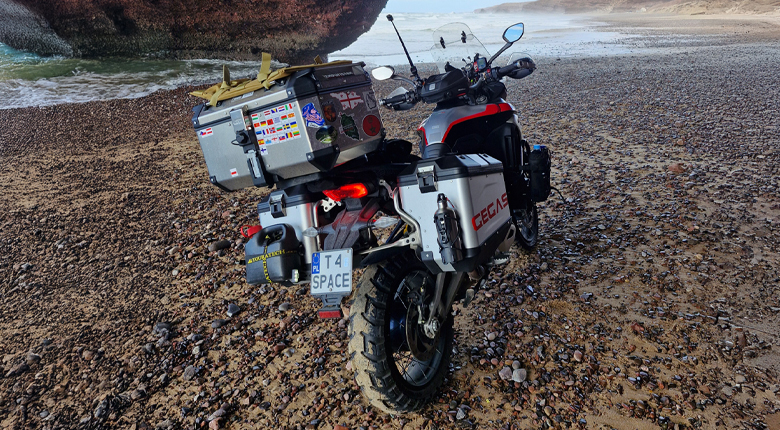
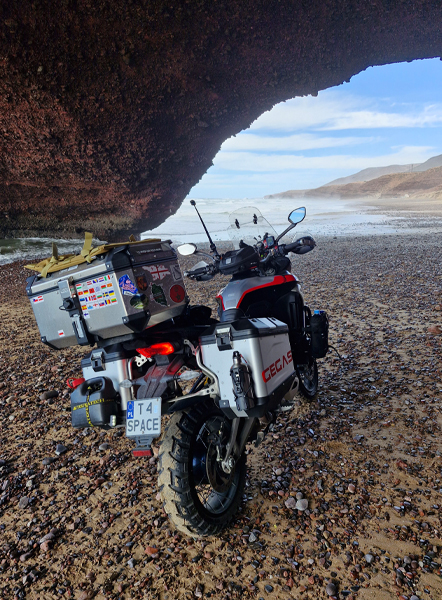
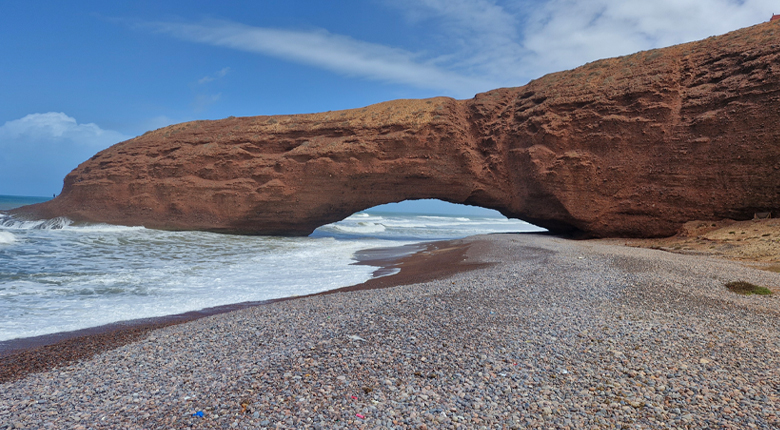
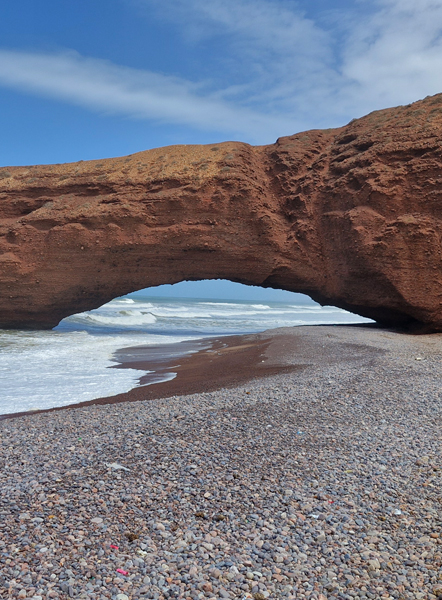
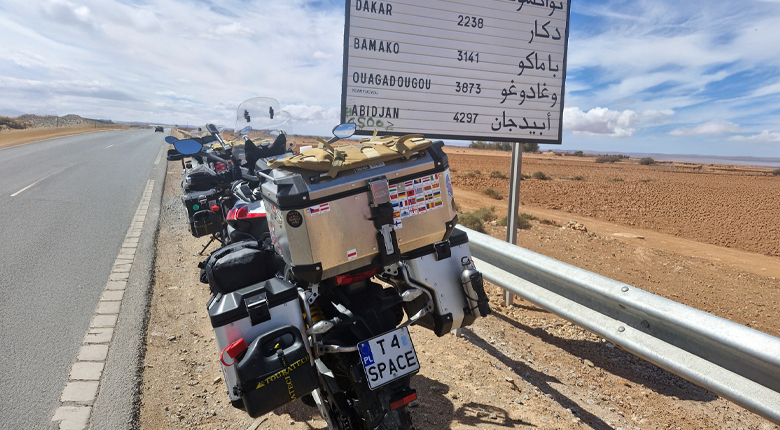
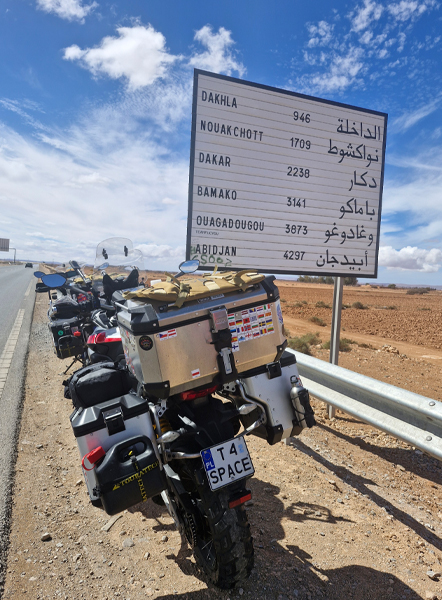
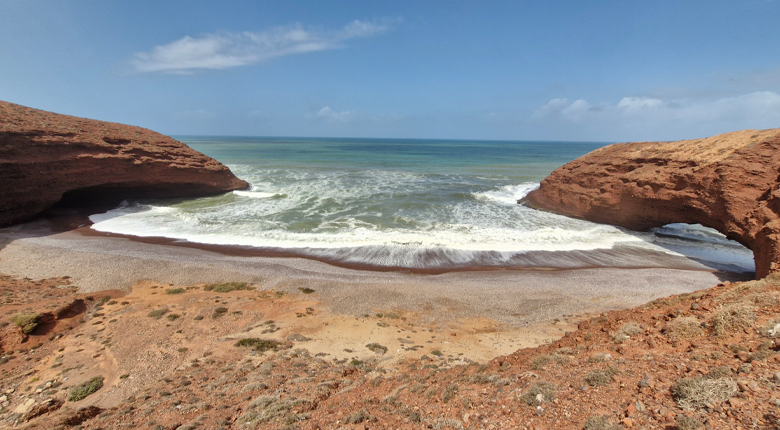
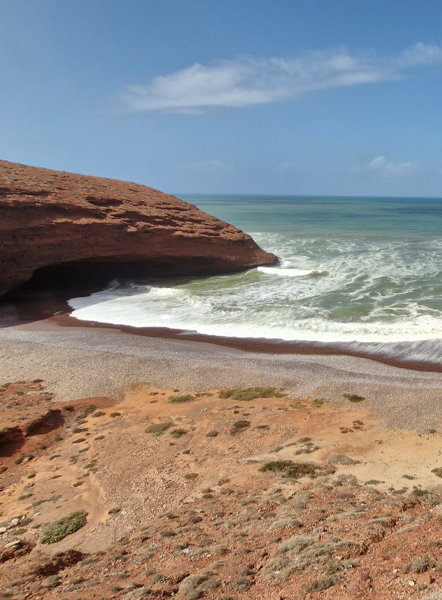
Mauritania: A Land Suspended Between Wind and Sand
Crossing into Mauritania required patience and precision. The border, open only during limited hours, involved long waits and thorough checks. The process took about four hours, and having an electronic visa was crucial to continue toward Nouakchott.
Once inside, Mauritania revealed its raw, untamed character: minimalistic landscapes, roads often damaged or nonexistent, sand everywhere, and isolated villages. The return leg from Nouakchott northward was among the most fascinating and challenging. Crossing the Diawling Nature Reserve, we found ourselves immersed in African wilderness, surrounded by wild animals and sandy trails.
Riding in these conditions demands solid bike control and technical preparation. A few tricks proved invaluable: an automatic chain oiler, quick access to the rear wheel key, and ergonomic upgrades like raised handlebars and a more comfortable seat—essential for long days in the saddle.

Senegal: Arrival in Dakar
After crossing into Senegal, we reached the historic colonial city of Saint-Louis on the Atlantic coast, then continued toward the legendary Dakar—a symbolic destination for every motorcycle traveler. A visit to the memorial of the Dakar Rally’s founder and the old finish line made this stage especially meaningful.
We then headed to Fatik, where we visited the Fathala Nature Reserve. There, we had a once-in-a-lifetime experience: a close walk with lions and a safari among baobabs, antelopes, and giraffes. Due to time constraints, we couldn’t cross into The Gambia, so our return north began from Fatik.


The Return to Europe: Atlantic Views, Dunes, and a Heart Full of Emotions
The return was far from a simple U-turn. From Saint-Louis, the group crossed Mauritania again, passed the border, and reached Nouadhibou, then continued into Western Sahara for a long transfer to Dakhla. The Atlantic coast offered breathtaking views where sand meets ocean—a powerful visual contrast after days inland.
Continuing north, the Dakhla–Guelmim stage was one of the longest: around 1,000 km in a single day. From there, we rode up to Marrakesh, where we soaked in the city’s vibrant atmosphere before heading to Tanger Med for the overnight ferry. After a long crossing and a 3 a.m. arrival in Manilva, we wrapped up the trip in Málaga.
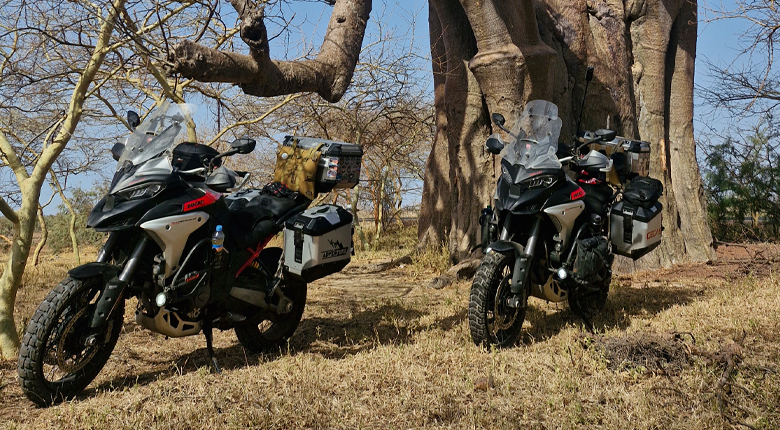
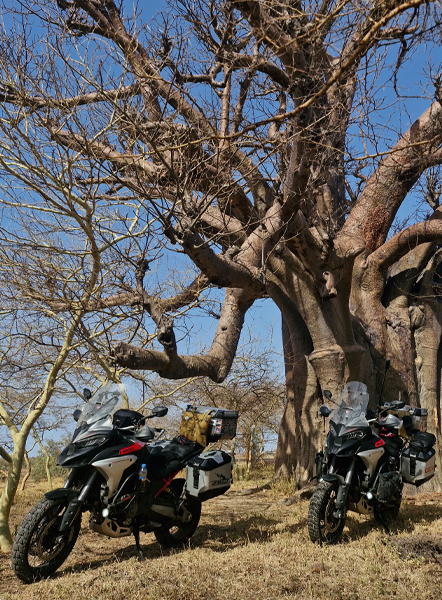
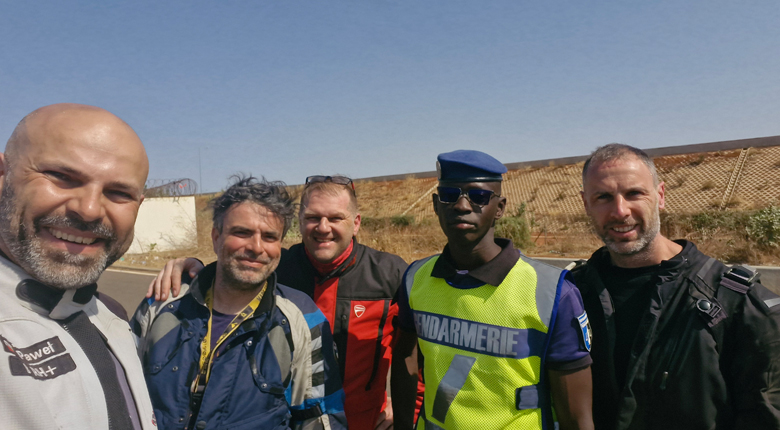
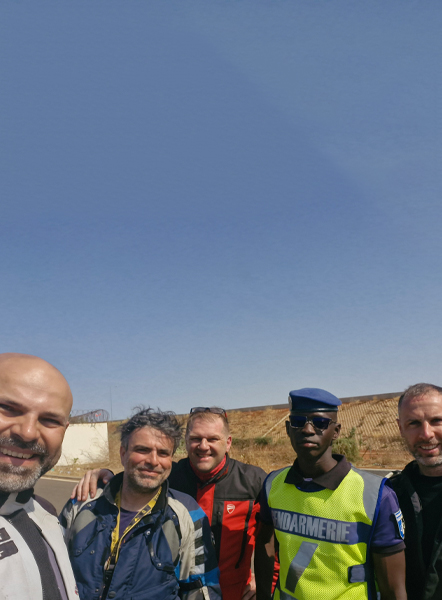
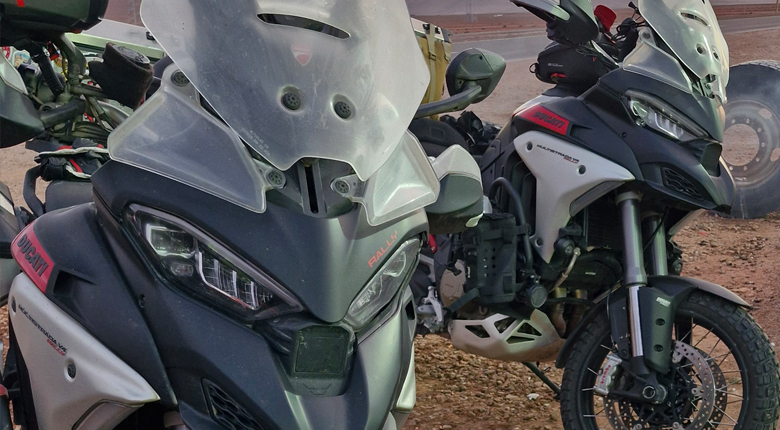
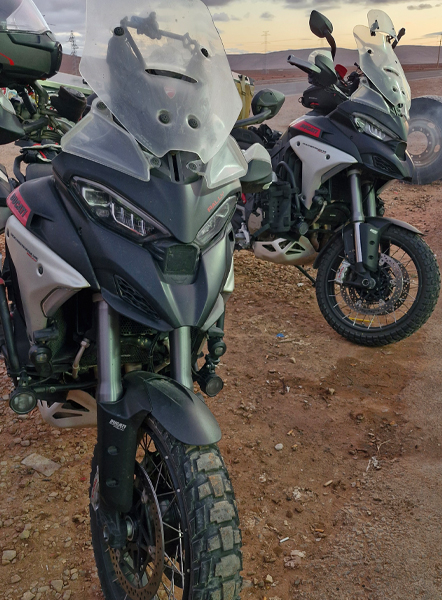
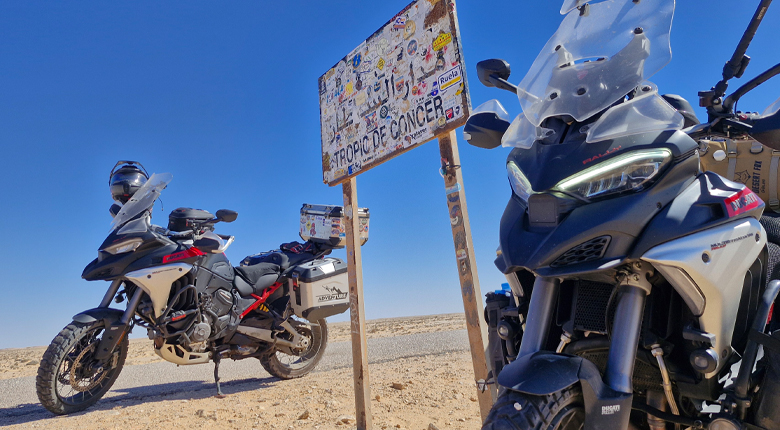
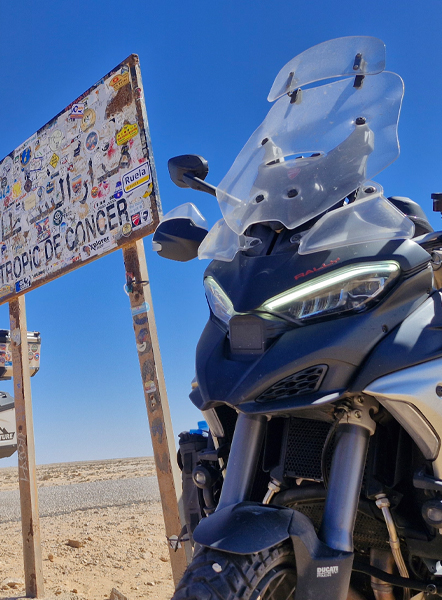
Travel postcards

The Multistrada V4 Rally is the ideal travel companion
High-performance, robust, and reliable thanks to the V4 Granturismo engine and its long maintenance intervals, it will take you wherever your desire for adventure leads you.
Discover more DesertX
DesertX Diavel
Diavel XDiavel
XDiavel
 Hypermotard
Hypermotard Monster
Monster Streetfighter
Streetfighter
 Multistrada
Multistrada Panigale
Panigale
 35 kW Bikes
35 kW Bikes
 Off-Road
Off-Road E-BIKE
E-BIKE
 Ducati Speciale
Ducati Speciale


